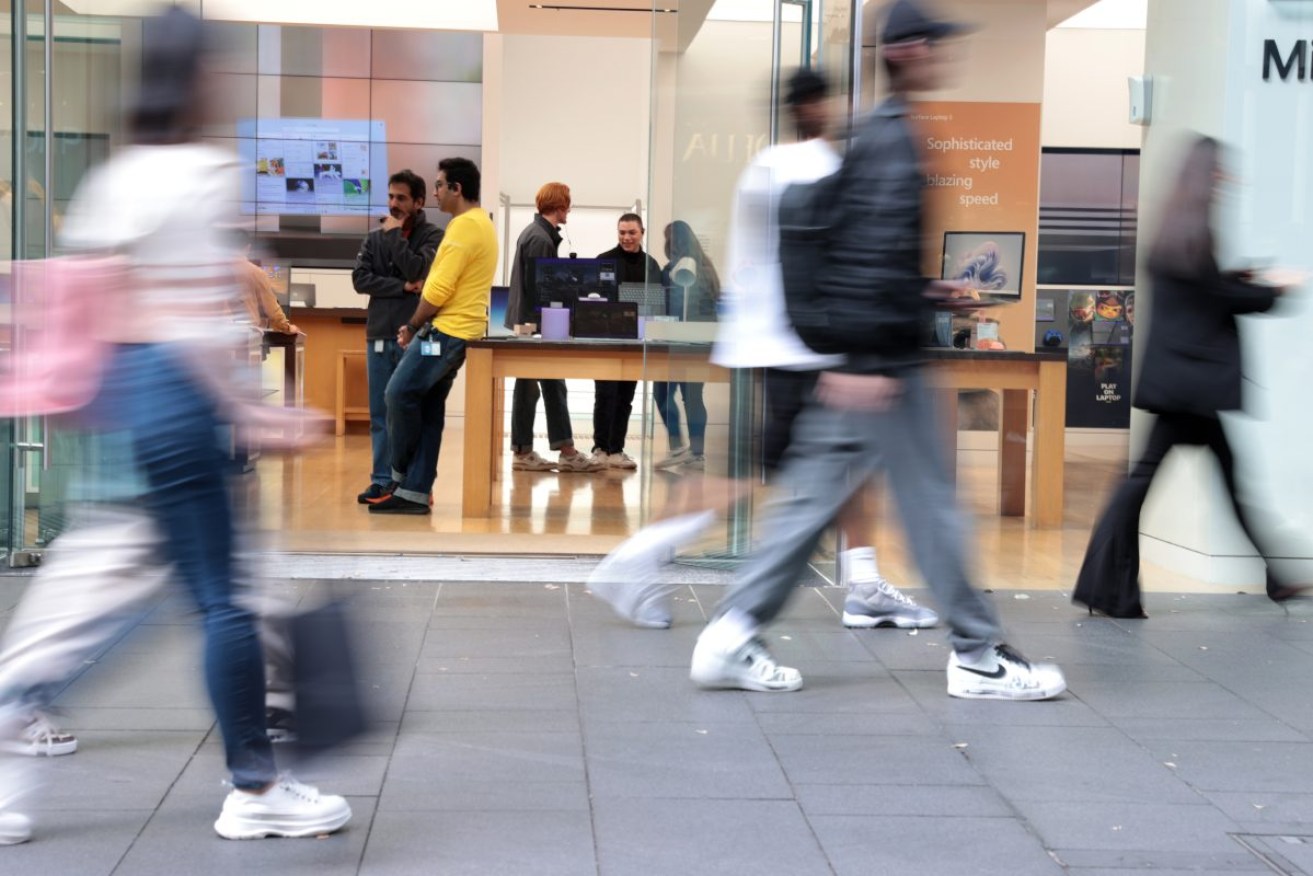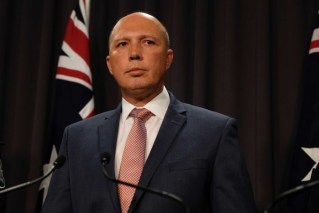Spending runs out of steam as latest figures show record 12-month drop
Shoppers had a more subdued month for retail spending in March after Taylor Swift concerts drove a flurry of sales activity in departments stores and the like in February.

Shoppers walk past a retail store in Sydney, Thursday, August 24, 2023 (AAP Image/Jane Dempster) NO ARCHIVING
Retail sales slid 0.4 per cent in March, which followed a 0.2 per cent rise in February, and one per cent lift in January.
The modest February increase was in part attributed to Eras tour spending, including stronger department stores and clothing sales.
Compared with March last year, sales by businesses as tracked by the Australian Bureau of Statistics lifted 0.8 per cent.
ABS head of retail statistics Ben Dorber said it was the weakest growth on record, outside the pandemic and introduction of the GST, when comparing turnover to the same time of the year before.
“Consumers pulled back on retail spending in March as cost of living pressures remained high,” Mr Dorber said.
Higher mortgage repayments, a growing tax take and elevated prices have been taking a toll on Australian consumers and leading to weakness in retail sales, especially across discretionary goods and services.
Food retailing was the only industry to record growth over the month, lifting 0.9 per cent.
The official retail sales count follows stronger-than-expected inflation data that dimmed hopes of interest rate cuts in coming months and had some economists warning further hikes could not be ruled out.
Yet Oxford Economics Australia head of macroeconomic forecasting Sean Langcake said the weak retail data was further confirmation consumer demand was “very restrained” due to financial pressures.
The 0.8 per cent increase in spending compared to a year earlier was “a very soft trend”, he said, when considering population growth.
“Strong price inflation for essentials like health and education and higher rent and mortgage costs are still putting the squeeze on household budgets and discretionary spending,” Mr Langcake said.
Clothing, footwear and personal accessory retailing fell 4.3 per cent and department store sales declined 1.6 per cent.
Mr Dorber said the falls across these categories suggested the Taylor Swift-inspired boost in turnover for fashion and accessory retailers last month was only temporary.
Household goods retailing fell 1.4 per cent in March, other retailing dropped 0.3 per cent, and cafes, restaurants and takeaway food services slid 0.2 per cent.












